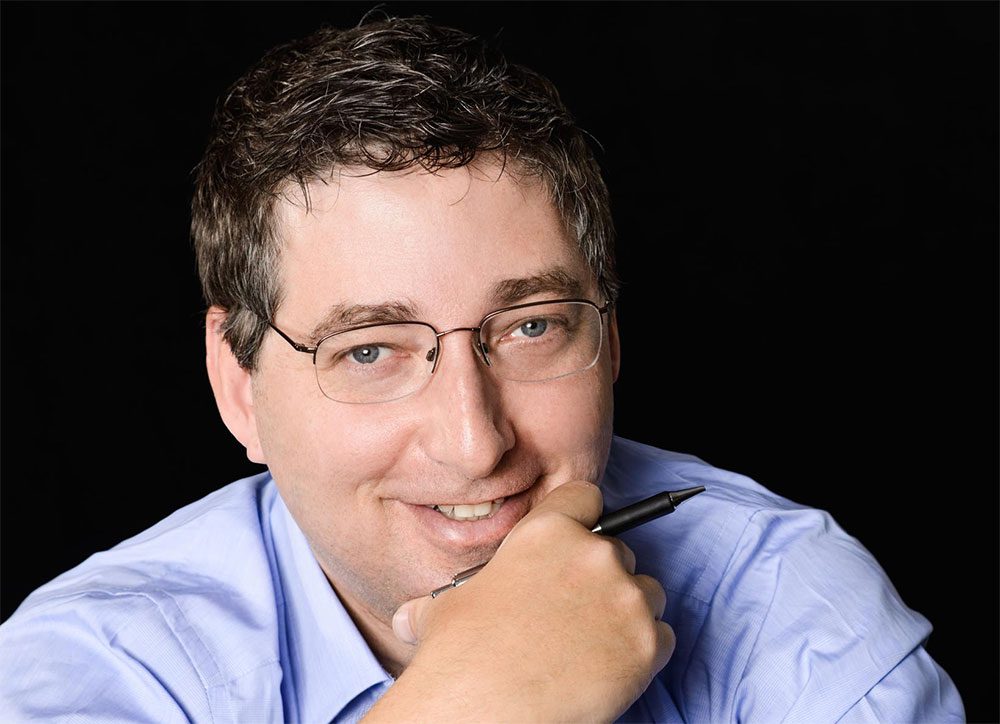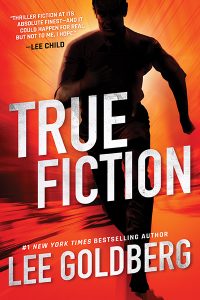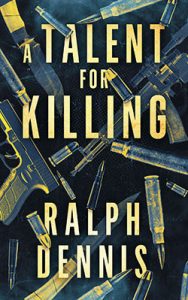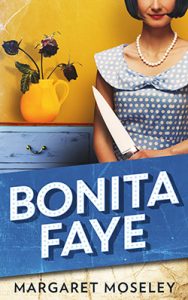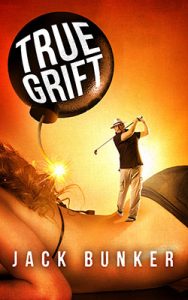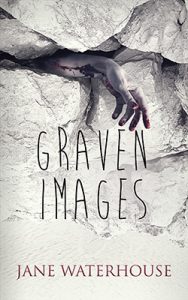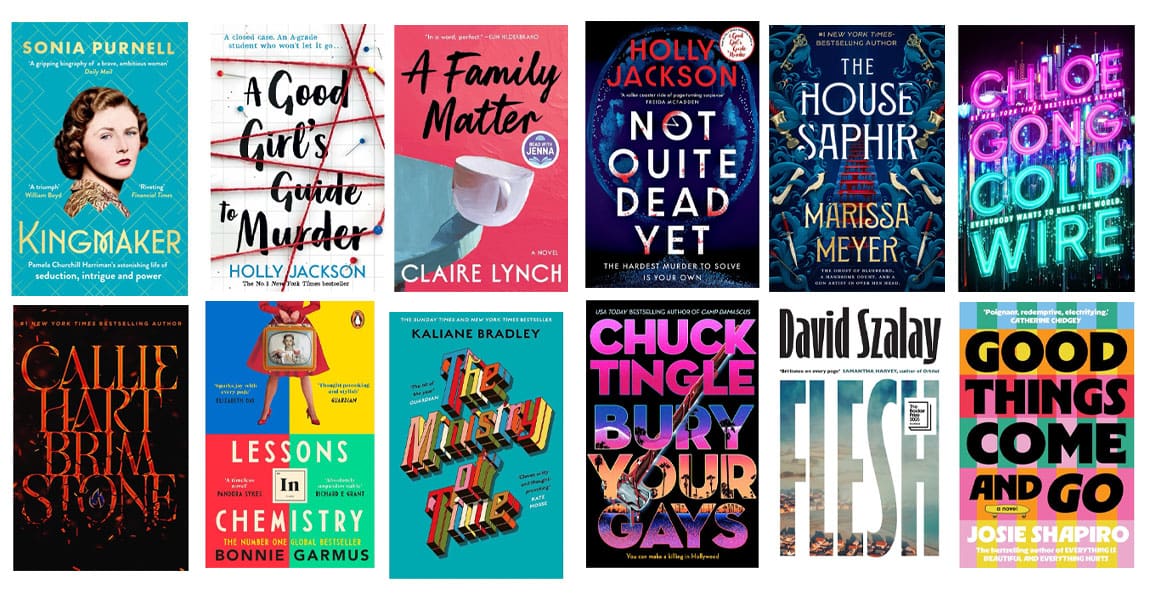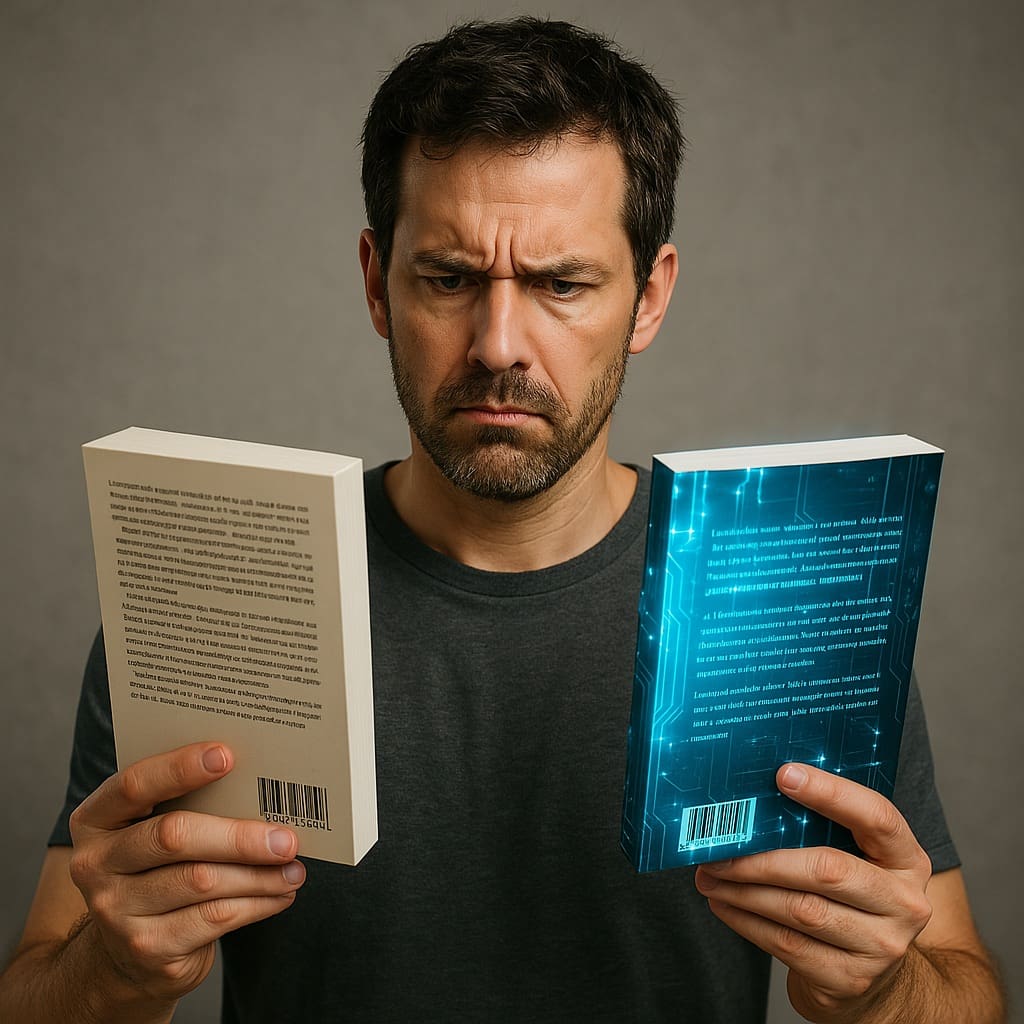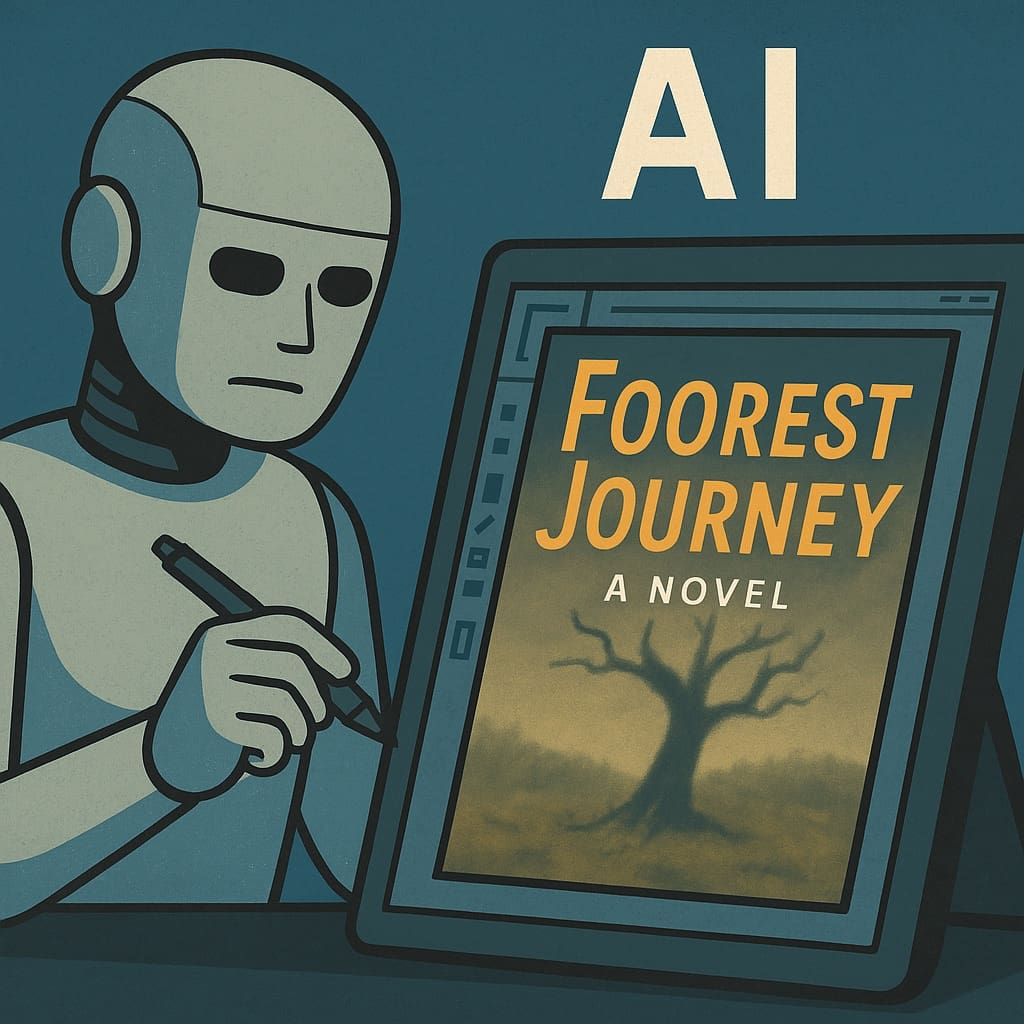A writer’s journey and experiences can be as interesting as the stories they write. Lee’s story and perspective reflects some reality of the business of becoming a #1 bestselling author.
Lee Goldberg is an ex-Navy SEAL, nuclear physicist and a professional Daniel Craig impersonator.
Okay, that’s not true but we had you for a second. His mother wanted him to be a doctor, and his grandfather wanted him to go into the family furniture business. Lee had other ideas and became a #1 New York Times Bestselling author. We got the opportunity to catch up with Lee and ask him 10 questions about how that came about and discovered quite a bit more we didn’t know!
You began your career as a freelance journalist after not following your Mom and Grandfathers wishes, how did you make the leap into full time writing and then into television?
When I was ten or eleven, I was already pecking novels out on my Mom’s old typewriters. The first one was a futuristic tale about a cop born in an underwater sperm bank. I don’t know why the bank was underwater, or how deposits were made, but I thought it was very cool. I followed that up with a series of books about gentleman thief, which was a thinly disguised rip-off of Simon Templar, aka “The Saint.” I sold these stories for a dime to my friends and even managed to make a dollar or two. In fact, I think my royalties per book were better then than they are now.
I continued writing novels all through my teenage years. By the time I was 17, I was writing articles for The Contra Costa Times and other San Francisco Bay Area newspapers and applying to colleges. Once I got into UCLA, I put myself through school as a freelance writer…for American Film, Los Angeles Times Syndicate, UPI, Newsweek. Anybody who would pay me. I had a girlfriend at Playgirl and she got me a gig writing sexually explicit Letters-to-the-Editor for $25 each. Most of the articles I wrote were interviews with novelists or people in the entertainment industry, so it was like getting a graduate school education in publishing and the movie business for free… better yet, I was paid for it!
You have had a very interesting journey as a writer, what experience would you say influenced you and developed you the most?
I think the years as a freelance journalist taught me so many essential skills – how to frame a story, how to edit, and how to write on a deadline, among other things. I also learned directly from the people I interviewed, since most of them were in publishing or television, both fields I hoped to enter.
“The years as a freelance journalist taught me so many essential skills – how to frame a story, how to edit, and how to write on a deadline, among other things”
There is an interesting story about how you got into publishing Lee, tell us what led to that jump?
I had a journalism advisor, Lewis Perdue, at UCLA who wrote spy novels. We became friends and talked a lot about mysteries, thrillers, plotting, etc. One day in the early 80s his publisher came to him and asked him if he’d write a “men’s action adventure series,” sort of the male equivalent of the Harlequin romance. He said he wasn’t desperate enough, hungry enough, or stupid enough to do it…but he knew someone who was: Me. So I wrote an outline and some sample chapters and they bought it. The book was called .357 Vigilante (aka The Jury Series). I wrote it as “Ian Ludlow” so I’d be on the shelf next to Robert Ludlum who was, at the time, the best selling author in America.
The West Coast Review of Books called my literary debut “as stunning as the report of a .357 Magnum, a dynamic premiere effort,” singling the book out as “The Best New Paperback Series” of the year. I ended up writing four books in the series. Naturally, the publisher promptly went bankrupt and I never saw a dime in royalties.
But New World Pictures bought the movie rights to .357 Vigilante and hired me to write the screenplay. I didn’t know anything about writing scripts…luckily, I had a good friend who did, William Rabkin. We worked together on the UCLA Daily Bruin. So the two of us teamed up. The movie never got made, but we had so much fun that we were writing partners for over 20 years. We went on to write and produce hundreds of hours of television together, including the series Diagnosis Murder, Baywatch, Hunter, SeaQuest, and Monk. We’re still good friends to this day, though I’ve been writing on my own for a decade now.
“The mistake I see authors making today is focusing more on the social media self-promotion than on the writing of the book itself.”
How did you market your first book? What mistakes do young authors make when marketing their first book?
My first book was published so many years ago – back in the mid-1980s – that what I did or didn’t do to market it has no relevance to how books are marketed today. But the mistake I see authors making today is focusing more on the social media self-promotion than on the writing of the book itself. Far too many authors are impatient and self-publish their work way too early… when they still have a long way to go in terms of mastering the craft of writing… and it’s very damaging. You only have one chance to make a first impression, and if you write a terrible book, or even one that’s merely mediocre, that’s what people will remember…and they won’t come back for the second one. Also, far too often, their covers look like amateurish crap… which implies the book will be, too. And since the cover of your book will be front-and-center in your promotion, it better look great. Too much of the promotion newbie authors do is basically desperate, cringe-inducing pleas to “BUY MY BOOK” or “REVIEW MY BOOK” rather than simply being themselves. Some of that is okay, but your social media streams shouldn’t be 90% self-promotional hype and 10% being yourself. The percentage should be the other way around.
“You only have one chance to make a first impression, and if you write a terrible book, or even one that’s merely mediocre, that’s what people will remember…and they won’t come back for the second one.”
Lost Hills has seen rave reviews, what do you think the secret to its success has been?
It’s been the biggest commercial and critical success of my career. I set out to write a police procedural that was fresh, that avoided all the cliches and tropes of the genre, while still delivering what readers expect. Perhaps I succeeded. I also worked very hard to keep my voice out of the prose, to make my writing as straight-forward, lean and invisible as possible, to let what the characters say and do drive the story forward rather than exposition. I think that allowed people to get caught up in the action, visualize everything, and forget that they were reading
“Worked very hard to keep my voice out of the prose, to make my writing as straight-forward, lean and invisible as possible, to let what the characters say and do drive the story forward rather than exposition.”
What considerations are often missed when authors want to self-publish? Any mistakes you feel you made and advice that could save someone a whole heap of trouble?
I touched on much of this in my answer to your earlier question about promotion. The biggest mistake authors make is that they simply aren’t ready to publish. They self-publish because they can, because it’s so easy and they are impatient to get into print or frustrated by all the rejections they have been getting. The problem is, the work by most unpublished authors isn’t ready to be published. The vast majority of self-published novels that I’ve read are horrible, unpublishable garbage. It’s critically important that self-published authors have their books professionally edited – I don’t mean copyedited, though that is crucial, too. I am talking about editing the content, the structure, the characters, the dialogue. Authors need to find an experienced, developmental editor who has worked on successful novels. Yes, it will cost you money, but it’s essential. Because the fact is, most of the authors who are self-publishing books are putting out embarrassing crap – and that won’t launch your career, it will kill it. If we weren’t in the middle of a pandemic, I would also urge authors to attend writers conferences, where you will not only learn the essentials of your craft, but make important contacts with editors, writers, and agents. In the meantime, if you write mysteries and thrillers, you can attend the “virtual” Thrillerfest, which has some amazingly helpful and insightful lectures and panels recorded on video (I am biased here – I recorded one of them with my brother Tod Goldberg, who is not only a NY Times bestselling author, but is an exceptional teacher – he runs University of California Riverside’s Low-Residency Graduate Creative Writing Program.
As a publisher, do you have any tips for budding authors or new authors out there, regarding briefing the designer for the cover design?
Don’t get stuck on recreating a specific scene or moment from the book on the cover. You want to capture the tone, feeling,and experience of the book. So I talk to the artists about the story, the pace, the attitude that I want to get across. And if there is a key setting, or object, or time period, I will mention that, too. I am a strong believer in having one clear, central image that pops in both thumbnail and “book size.” I also don’t want to clutter the cover with too many images or any text besides the title and author’s name. Most readers and buyers will encounter the cover in thumbnail first and most frequently – so that is the image size that matters most. All covers look great full-screen, but that’s not where your focus should be. I always reduce the image to thumbnail size and work from there. The central image and text have to be clear – and they have to “pop.” That little postage-stamp of a cover has to grab the reader and sell your book.
“Don’t get stuck on recreating a specific scene or moment from the book on the cover. You want to capture the tone, feeling,and experience of the book.“
What was it like working with Damonza on some of your cover designs?
I have probably worked on sixty or seventy covers with Damonza, if not more, as a publisher and, to my surprise, also as an author working with other publishers who’ve hired them. The artists at Damonza are wonderful at capturing the attitude or feeling of the book. They create truly original covers that stand out, which is crucial. Their covers have multiple-layers to the images and rich, enhanced font treatments – they aren’t just taking an untreated stock photo, pasting in a second stock photo, and slapping text on it using a simple, straight-forward, untouched font – which is what so many covers are out there. Their covers are slick, professional, and totally unique. Their covers have a personality. Their covers grab you. That’s why I keep coming back to them again and again.
“Their covers are slick, professional, and totally unique. Their covers have a personality. Their covers grab you. That’s why I keep coming back to them again and again…”
What do you think Damonza gets right with their approach toward book cover design?
They take the time to understand the book…the tone, attitude and experience you are going for… and they keep at it until they get it right. Sometimes that takes a few drafts, but they are great at interpreting your notes and doing the work necessary to achieve a terrific final result. And their customer service is top-notch. One of the big reasons that Brash Books is a success is because of the incredible covers that Damonza has designed for us.
“They take the time to understand the book…the tone, attitude and experience you are going for… and they keep at it until they get it right.”
Check out Lee’s website or visit Brash Books here.
Some of the covers Damonza has designed for Brash Books:

